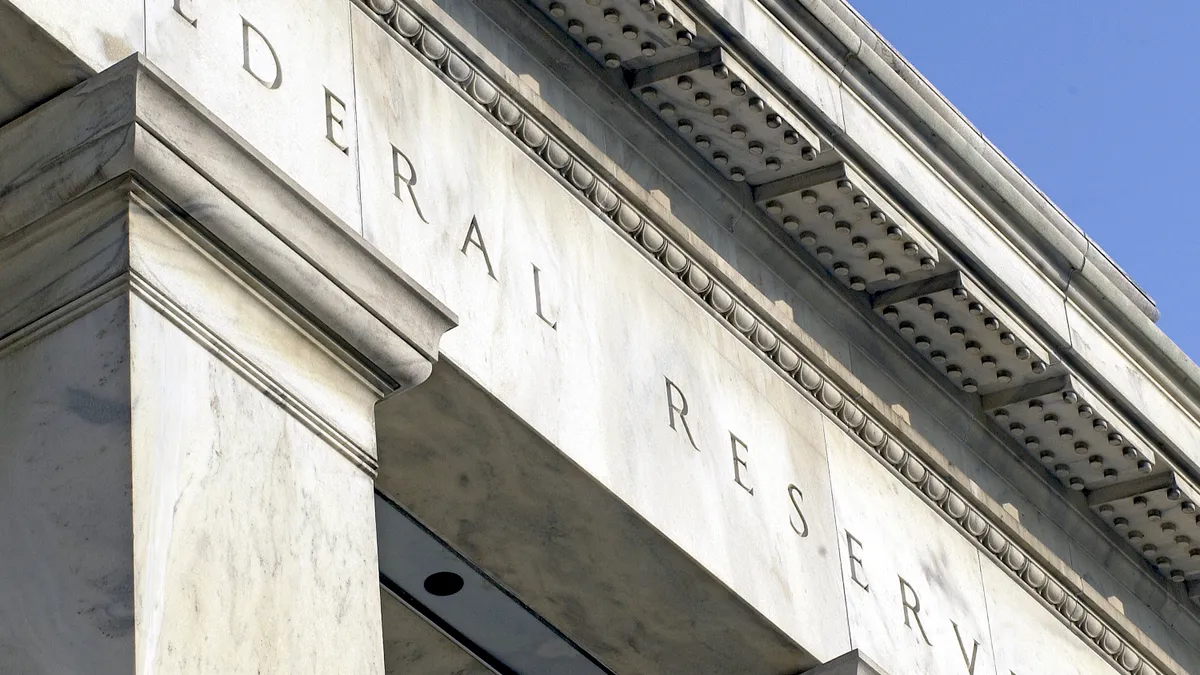Dive Brief:
-
The Federal Reserve Bank of Boston is partnering with researchers at the Massachusetts Institute of Technology (MIT) in an effort to build and test a "hypothetical" central bank digital currency (CBDC), Fed Governor Lael Brainard said in a speech Thursday at the Federal Reserve Bank of San Francisco.
-
The central bank aims to gain a deeper understanding of the opportunities, challenges and use cases of digital currencies as a complement to cash and other payments options, Brainard said, adding that the findings from the study will be published, and any codebase that is developed will be offered as open-source software for anyone to use for experimentation.
-
"There continues to be strong demand for U.S. currency, and we remain committed to ensuring the public has access to a range of payments options," she said.
Dive Insight:
In her speech, the Fed governor said the introduction of bitcoin and other stablecoins, such as Facebook's Libra, have raised fundamental questions about legal and regulatory safeguards and the role of currency in society.
"Digital currencies, including central bank digital currencies, present opportunities but also risks associated with privacy, illicit activity, and financial stability," she said. "This prospect has intensified calls for CBDCs to maintain the sovereign currency as the anchor of the nation's payment systems."
Brainard also cited China's rapid expansion of its own CBDC pilot program as motivation for the Fed's research and experimentation.
China's Commerce Ministry announced Friday that the country has expanded its digital currency pilot program to a number of large cities, according to the The Wall Street Journal.
The discussion over establishing a Fed-created digital currency has been ongoing. The leaders of the House Financial Services Committee's Artificial Intelligence Task Force last fall urged Fed Chairman Jerome Powell in a letter to develop a U.S. dollar digital currency.
A survey of more than 13,000 people published in February on behalf of the Official Monetary and Financial Institutions Forum (OMFIF) found central banks to be the most trusted issuers of digital currency. About 51% of respondents said they'd trust a digital currency issued by a central bank, compared with a 48% trust rating for payment service providers such as PayPal, 47% for commercial banks, 40% for credit card companies and 37% for internet technology companies.
In addition to the research, Brainard said Thursday, a "significant policy process" would be required for the central bank to consider the issuance of a CBDC, "along with extensive deliberations and engagement with other parts of the federal government and a broad set of other stakeholders."
Brainard said there are also important legal considerations.
"It is important to understand how the existing provisions of the Federal Reserve Act with regard to currency issuance apply to a CBDC and whether a CBDC would have legal tender status, depending on the design," she added.
The Fed has not yet made a decision whether to undertake a policy process, Brainard said, adding the central bank is "taking the time and effort to understand the significant implications of digital currencies and CBDCs around the globe."














